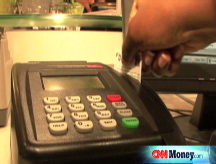Congress tackles credit card reform
Lawmakers say legislation is needed to curb many of the 'unfair' practices employed by credit card issuers.
NEW YORK (CNNMoney.com) -- Consumers, public interest groups and some federal regulators pushed lawmakers to enact sweeping changes to the credit card industry, aimed at remedying what they view as questionable practices of the credit card industry that keep consumers mired in debt.
More than half of the 15 witnesses that testified before a panel of the House Financial Services committee endorsed a 9-point legislative plan unveiled earlier this year by Rep. Carolyn Maloney, D-N.Y., dubbed the Credit Cardholders' Bill of Rights.
"If this is going to be resolved, it has to be resolved here in Congress," said Sen. Carl Levin, D-Mich., who was among those who testified Thursday.
Thursday's hearing, which marked the fourth time in the past year that House lawmakers tackled the issue, has become an issue that has taken on more relevance as Americans face rising unemployment, rising inflation and have had to increasingly rely on their credit cards to make ends meet.
Based on the most recent data from the Federal Reserve, the average American family carries an average of $2,200 in credit card debt.
Critics have charged that many credit card issuers engaged in "unfair" practices such as raising interest rates on debt even when consumers pay on time or imposing excessive fees.
Credit card issuers have argued, however, that such a law would have dire consequences on all consumers by making credit more expensive and less easily available.
Some credit card company representatives at Thursday's hearing, including John Carey, the chief administrative officer and executive vice president of Citigroup (C, Fortune 500) Inc.'s credit card division, acknowledged that some industry practices had gotten out of hand.
"I do believe there are certain practices that are so outrageous and so unfair they should be stopped," said Carey.
But at the same time, Carey and stressed caution, warning that new legislation could have unintended consequences.
Facing heightened scrutiny from Congress, some of the nation's largest credit card companies have attempted to revise their policies. A year ago, Citigroup put an end to the practice of "universal default" which allows an issuer to raise interest rates on if a consumer is late paying any other bills.
And last fall, JPMorgan Chase announced it would work to help its customers better understand and manage their accounts through clearer pricing.
But supporters of the bill also saved some of their venom for those regulators who did a poor job of policing the credit card issuers and their pricing policies.
Rep. Maxine Waters, D-Calif. blasted the Office of the Comptroller of the Currency for failing to police suspect practices by credit card issuers.
"What are you good for? What do you do?" asked Waters.
Apart from Maloney's bill, a number of new legislative proposals are currently floating around Congress. On the Senate side, both Levin and Sen. Robert Menendez, D-NJ, have proposed legislation aimed at reforming the industry.
The issue has also garnered the attention of the Federal Reserve, which has proposed separate action, including requiring credit-card issuers to notify consumers at least 45 days notice if they plan on raising interest rates.
Still much of the hearing reverted back to what impact any changes would have on the average American.
Lawmakers were captivated by the credit card horror stories presented by three individuals Thursday, including that of Susan Wones, a Denver woman who said the rates on her multiple credit cards spiraled higher even though she stayed below her credit limit.
"I don't believe that is fair for me to pay my bills on time and live by the rules of the contract and still be penalized," said Wones. "This system must be reformed so that customers like me are treated fairly and equitably." ![]()


